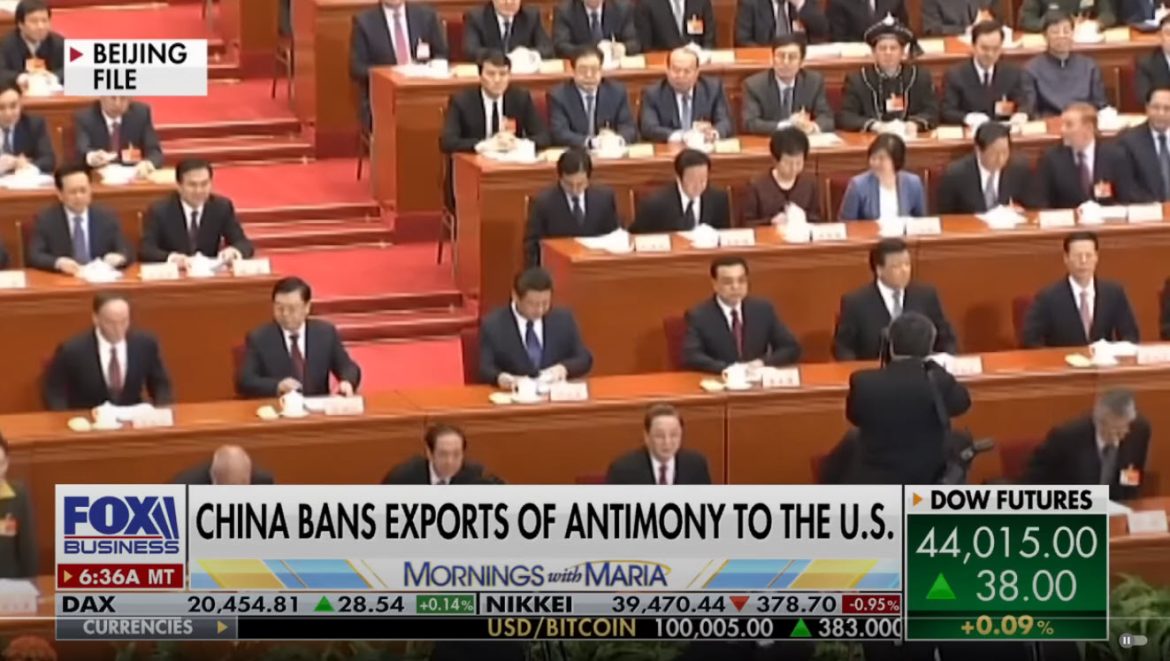The U.S.-China trade tensions are reaching new heights as Beijing enacts a sweeping export ban targeting critical technologies and materials. This latest move has left American industries scrambling, with experts warning that the U.S. must act quickly to mitigate the fallout and secure its supply chains. The ban, which primarily restricts the export of key semiconductor materials and rare earth elements, is seen as a direct response to U.S. policies aimed at curbing China’s technological advancement.
Economic and geopolitical analysts emphasize that this escalation could have far-reaching implications for the global economy. Speaking on the issue, a prominent trade expert has described the ban as a wake-up call for the U.S., urging policymakers to accelerate domestic production of critical materials and invest in alternative supply chains. “We have to move quickly,” the expert states, highlighting the vulnerabilities exposed by the dependency on Chinese exports in sectors like electronics, defense, and renewable energy.
China’s decision underscores its leverage in the global tech ecosystem. Rare earth elements and advanced semiconductor materials are essential for manufacturing everything from smartphones to electric vehicles and military hardware. By restricting exports, Beijing aims to assert its dominance in these sectors and counter U.S. sanctions on Chinese tech firms like Huawei. The ban also sends a clear signal to other countries about the risks of relying on Chinese supply chains during geopolitical standoffs.
The Biden administration has acknowledged the seriousness of the situation. In recent weeks, high-level discussions have been held to explore ways to minimize the impact of the ban. Efforts include incentivizing domestic production of rare earth materials, bolstering partnerships with allied nations like Japan and South Korea, and investing heavily in next-generation manufacturing technologies. However, experts caution that developing a robust alternative to China’s dominance in these industries will require years of effort and billions of dollars in investment.
Tech companies are among the first to feel the effects of the ban. U.S. semiconductor firms, already grappling with global chip shortages, face the prospect of higher costs and delayed production timelines. Renewable energy companies are similarly impacted, as rare earth materials are vital for wind turbines and electric vehicle batteries. Defense contractors, too, are raising concerns about how this disruption could affect national security.
The export ban comes at a time of heightened global uncertainty, as nations reassess their economic interdependence in the wake of the COVID-19 pandemic and ongoing geopolitical tensions. Analysts suggest that China’s move is not merely economic but also strategic, designed to challenge U.S. leadership in key technological domains. This development could further complicate efforts to stabilize the already strained relationship between the world’s two largest economies.
For U.S. industries and policymakers, the message is clear: the time for action is now. With Beijing demonstrating its willingness to leverage its control over essential materials, experts stress the need for a unified response that addresses both immediate challenges and long-term vulnerabilities. As one industry leader puts it, “This isn’t just about economics; it’s about securing our future.”



